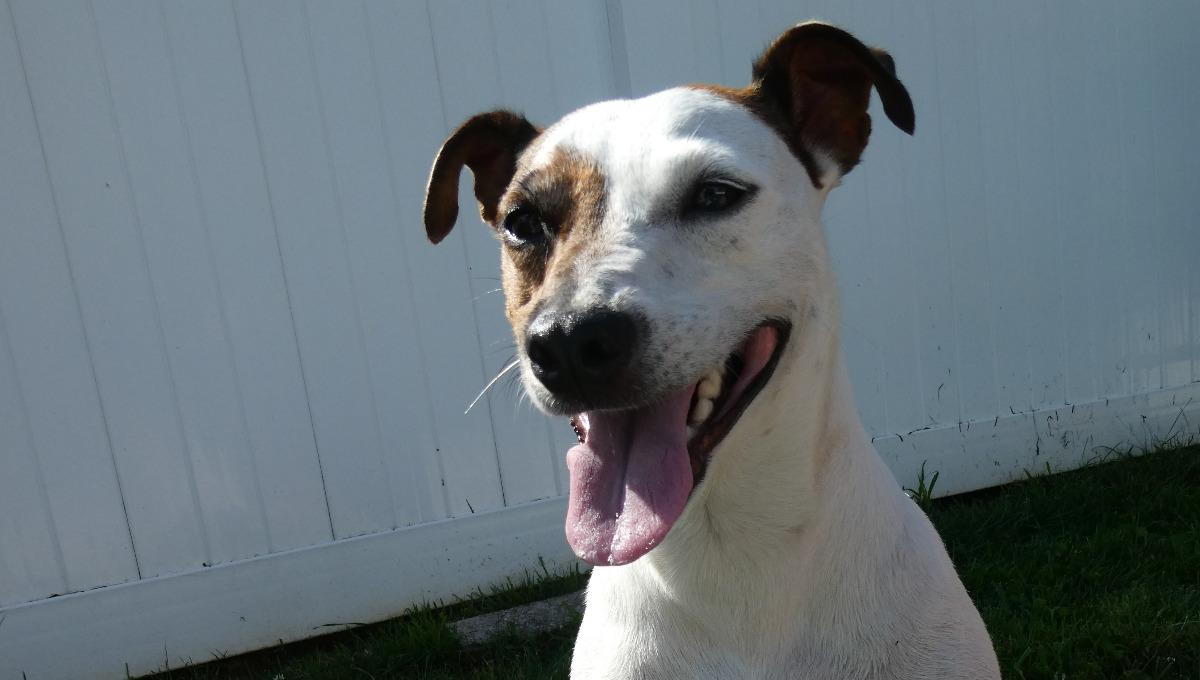When is Panting Considered Abnormal?

- posted: Feb. 03, 2024
When is Panting Considered Abnormal?
Dogs pant for a variety of reasons, most of which are normal or not concerning. However, sometimes panting, especially when excessive or occurring at an unusual time may indicate an underlying problem. Let’s explore why dogs pant and when you should be concerned.
The primary function of panting is to cool your dog. Dogs don’t sweat like people do, so evaporative cooling by panting is one of the main ways dogs have to cool off when they are overheated. But dogs may also pant for other reasons.
Your dog is hot: Of course, panting would be most common in hot weather or if your dog has been playing or exercising. Exercise, play and warm weather can all increase body temperature and the natural way for your dog to cool off is to start panting.
Excitement or anxiety: Dogs often pant when they are excited or nervous about something. Excitement, fear or anxiety can cause an increase in the hormone cortisol which increases respiratory and heart rate and leads to panting. If your dog seems generally happy and normal, the panting will likely resolve when his excitement or nervousness abates. If heavy panting continues and your dog seems lethargic or calm, something else may be wrong.
Pain: Pain can also trigger cortisol release and may lead to panting. If your dog has injured herself, she may be reluctant to move, may be visibly painful or uncomfortable such as with lameness or abdominal pain or may whine or yelp though dogs in pain do not always vocalize.
Medical conditions: A whole host of medical conditions may cause panting. One of the most common ones is a condition called Cushing’s Disease. This disease is caused by excess production of our old friend cortisol and increased drinking, appetite, and—you guessed it—panting are all common symptoms. Other health conditions such as heart disease, respiratory illnesses such as pneumonia, anemia, and laryngeal paralysis to name a few can also have panting as a symptom.
Medications: Unsurprisingly, prednisone which is a steroid similar to cortisol is the number one medication that can cause panting. But other drugs may occasionally cause panting as well such as bronchodilators, narcotics, seizure medications, and thyroid medications can cause increased respiratory rate and panting in some patients. Some toxins may also cause panting.
So, panting is not always a problem, but there are cases where you may want to check with your vet. If an episode of panting seems prolonged, the breathing is hoarse or very loud, occurs when the dog is calm and resting and the ambient temperature is cool, if the dog’s gums or tongue look blue or purple, bright red or white or just seems out of character for your pooch, check with your vet. By the way, cats almost never pant unless they are extremely stressed or overheated so check with your vet if your cat is open mouth breathing in any situation other than if he or she has been racing around/extremely active or stressed as we may see in a cat who was fighting with another cat or on a car ride.
This blog brought to you by the Patton Veterinary Hospital serving Red Lion, York and the surrounding communities.
https://www.whole-dog-journal.com/behavior/determining-the-cause-of-your-dogs-panting/
https://www.pethealthnetwork.com/dog-health/dog-diseases-conditions-a-z/when-dog-panting-abnormal
https://www.texvetpets.org/article/when-panting-is-abnormal/
Location
Patton Veterinary Hospital
425 E Broadway
Red Lion, PA 17356
